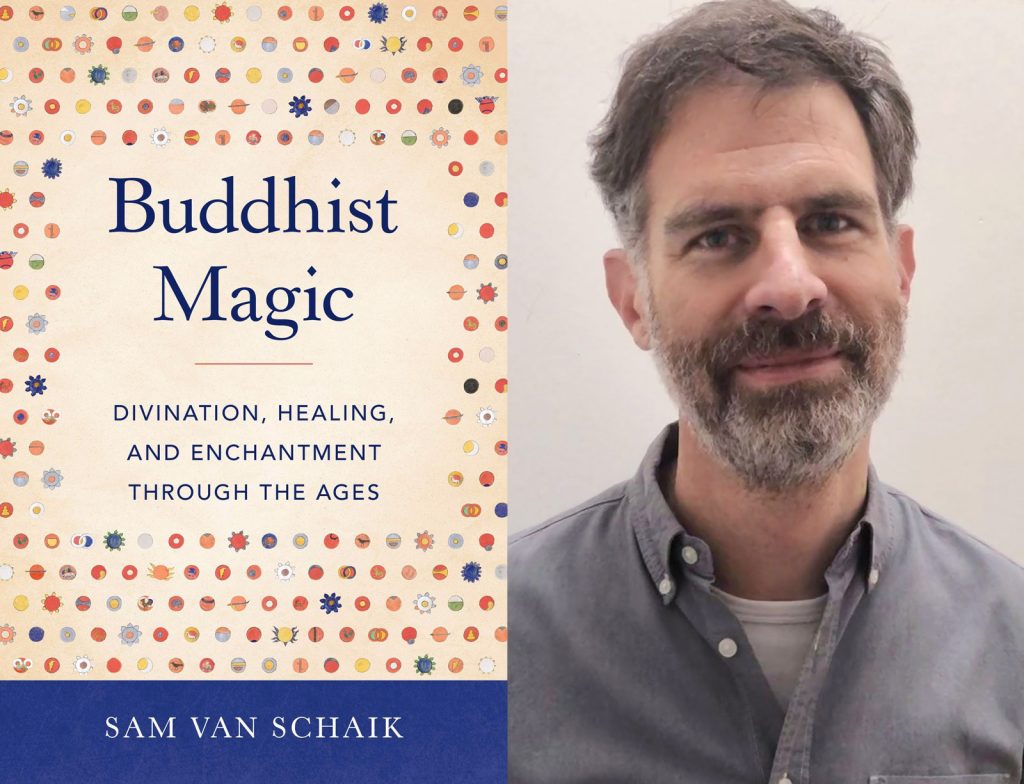Tricycle is pleased to offer the Tricycle Talks podcast for free. If you would like to support this offering, please consider donating. Thank you!
When we think about Buddhism, we don’t often think about monks and nuns conjuring spells or curses to break up lovers, exorcise demons, prevent unwanted pregnancies, or kill enemies. But for over two and a half millennia, magic and healing rituals have been an integral part of everyday Buddhism. They were also key to Buddhism becoming a cosmopolitan religion, flourishing in areas beyond the Indian Buddhist heartland. The magical aspects of Buddhist history, however, have been ignored or dismissed by scholars of Buddhism and by Buddhists themselves, resulting in a distorted view of the traditions we may study and practice today.
In his new book, Buddhist Magic: Divination, Healing, and Enchantment Through the Ages, Sam van Schaik, a textual historian and practitioner of Tibetan Buddhism, makes a compelling case for why we should pay attention to Buddhism’s magical heritage—and what we lose by casting it aside. Having previously worked for the International Dunhuang Project, van Schaik currently heads the Endangered Archives Programme at the British Library in London. He is the author of Tibet: A History, Tibetan Zen, The Spirit of Zen, and The Spirit of Tibetan Buddhism.
In our latest podcast episode with Tricycle’s Editor and Publisher James Shaheen, van Schaik debunks misperceptions about early Buddhism by showing how magical literature can offer a more holistic and realistic view of Buddhism from the ground up. He also paints a vivid picture of the role monks and nuns may have played in the magical-gig economy as well as how we can view mindfulness meditation in a comparable way—as the magic of our current age.
Tricycle Talks is a podcast series featuring leading voices in the contemporary Buddhist world. You can listen to more Tricycle Talks on Spotify, iTunes, SoundCloud, Stitcher, and iHeartRadio.
♦
Sponsored by St. John’s College
Thank you for subscribing to Tricycle! As a nonprofit, we depend on readers like you to keep Buddhist teachings and practices widely available.

